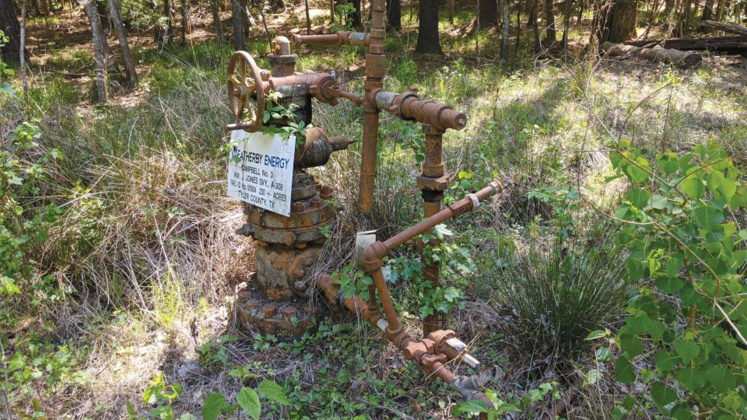Now in year two of their efforts to secure orphaned wells in the ecologi- cally significant landmark, the Big Thicket National Preserve is scheduled to receive $550,000 from the Bipartisan Infrastructure Law this year.
Said funding will cover the cost of plugging a pair of orphaned wells, however, according to Megan Urban, chief of Interpretation and Education with the Big Thicket National Preserve, there are multiple additional wells that have already been identified and are in line for funding to be secured.
Although methane pollution from unplugged wells is a serious safety hazard and a significant driver of climate change, there are not any short term or immediate dangers present in the preserve.
“None have been leaking gases or oil into the environment, however plugging them is a necessary preventative measure,” said Urban.
Last year, the same funding source covered the cost to close seven orphaned wells and, while the staff and railroad commission continue what they refer to as a scavenger hunt to locate others, Urban says that the US Department of the Interior’s $63.8 million investment this year is funding remediation at orphaned oil and gas well sites within national parks, national wildlife refuges and other public lands and water throughout the state. This allocation is part of the overall $250 million provided by the Bipartisan Infrastructure Law to clean up legacy pollution on federal public lands.
“During the Southeast Texas oil boom, so many small companies looking for oil set up and subsequently abandoned their wells when they went bankrupt, so identifying the culprits isn’t a possibility at this point,” Urban said, adding that record keeping during the time and at small companies was not sufficient enough to expect to be able to hold perpetrators accountable for cleaning up their own messes.
“We are excited to expand the work being done at Big Thicket to address legacy pollution and improve the environment, water quality and economic revitalization in Southeast Texas,” said Superintendent Wayne Prokopetz.
In addition, Big Thicket will receive $200,000 this year from the Bipartisan Infrastructure Law Ecosystem Restoration fund to increase efforts to restore the longleaf pine savannah ecosystem.


